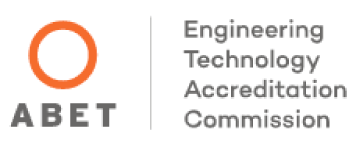Biotechnology
Biotechnology is opening new frontiers in different industries. Its multidisciplinary approach leads it to use biological systems to solve environmental, medical, and industrial problems. In agriculture and livestock, constant modifications and improvements are made in various species. In food, new more nutritious, healthy, and durable options are generated. In pharmaceuticals, medicines and vaccines are constantly being developed that increase our well-being.
Why study Biotechnology?
15.5%
Expected compound annual growth rate for the biotechnology industry on a global scale.
20.63%
Annual growth of graduates in biotechnology and bioengineering in Mexico.
+7
Industries in which biotechnology graduates can work. Among them: agriculture, livestock, food, cosmetics, textiles, chemicals and materials, environment, pharmacy and veterinary.
What doeas a graduate in Biotechnology do?
Biotechnology graduates are among the most innovative and enterprising professionals, since they constantly found companies dedicated to developing advanced products, such as medicines, more environmentally friendly products, and more nutritious foods to combat hunger in the world.
In Mexico, one of the most biodiverse countries in the world, biotechnology has unparalleled growth potential. Those who work in this branch of science and technology have a wide spectrum of job opportunities, ranging from applied research to the development of companies with a great future in the potential to change the environment in this century.
As a biotechnology graduate, your mission will be to develop new products and technologies to extend people’s capabilities, improve the lives of thousands of people, and contribute to building a better future.
At Arkansas State University Campus Querétaro, we will prepare you to be a professional with the bases to specialize in any of the areas (new and traditional) of the biotechnology world. With our degree, your work options are boundless in Mexico, the United States and the world.
Apply now. Start your path in the world of mechanical engineering and get ready to do your part in building a better future.
Live our university life
Double Degree
Valid in México and the United States
Classes 100% in English
With a multicultural team of teachers
American University Model
The first US university in México
Acredited


Request Information
Our Student Testimonials




Labor Field Where do professionals in Biotechnology work?
Some of the best companies where biotechnologists can work
- Astra Zeneca
- GREENCORP
- Bokados
- AVIMEX
- Biokrone
- Grupo Silanes
- UNAM
- NOVO NORDISK
- Institut pasteur
Aspire, Dream, Realize Some great engineers of the 21st century


Maxine Singer
molecular biologist and science administrator
Worked on RNA synthesis, genetic recombination in certain viruses, and chromatin structure.


Kiran Mazumdhar-Shah
Founder of Biocon Limited
Established his own laboratory to research fermentation.


Sarah Gilbert
Founder of Vaccitech
Participated in the development of one of the first vaccines against Covid-19.


Jennifer Doudna
Li Ka Shing Chancellor's Chair Professor
She discovered the CRISPR technique, which allows the editing of the DNA of any organism. -Nobel Prize in Chemistry.
Learning Outcomes
An engineering program student at Arkansas State University Campus Querétaro is able to:
1. Adopt a code of ethics in the professional and social context, and demonstrate exemplary professional, ethical, and legal behavior in decision-making.
2. Solve, analyze, and interpret data generated from experiments carried out in work related to projects or practical courses.
3. Demonstrate skills using modern analytical tools/software/equipment and analyze and solve problems in biotechnology.
4. Appreciate and execute a professional role in society as a biotechnology professional, employer, and employee in various industries, as a regulator, researcher, educator, and administrator.
5. Demonstrate knowledge of deep critical and analytical thinking, which leads to identification formulation, and problem resolutions related to the biotechnology industry, the pharmaceutical industry, medical or hospital organizations, regulatory agencies, and academia.
6. Apply written and oral communication skills to communicate effectively in health care, industry, academia, and research.
7. Apply responsibilities to promote the health and safety of society, maintaining the trust bestowed on the profession by society.
8. Demonstrate skills, attitudes, and values necessary for self-direction, lifelong learning, and professional development.
Degree Plan
General Education
- Making Connections – Biology
- Composition I
- Composition II
- Oral Communication
- Survey of Calculus or Calculus 1
- Biology of the Cell
- Biology of the Cell Laboratory
- General Chemistry I Laboratory
- General Chemistry
- U.S History or U.S Government Elective
- Social Science Elective I
- Social Science Elective II
- Fine Arts Elective
- Humanities Elective
Biotechnology Core
- Biotechnology in Global Society
- Genetics Laboratory
- Genetics
- Bioinformatics and applications
- Special Problems in Biology
- Applications of Biotechnology
- Biosafety and Ethics in Research
- Molecular Biology
- Microbiology
- Cell Biology Laboratory
- Cell Biology
- Laboratory in Bio Techniques I
- Laboratory in Bio Techniques II
- General Chemistry II Laboratory
- General Chemistry II
- Organic Chemistry I
- Organic Chemistry Laboratory
- Organic Chemistry II
- Organic Chemistry II Laboratory
- Biochemistry
- Biochemistry Laboratory
- General Physics I
- General Physics II
- Applied Statistics
Biotechnology Electives
- 6 credits in Biological Science Electives
Support Courses
- Biology of plants Laboratory or Biology of animals Laboratory
- Biology of plants or Biology of animals
- Principles of management or entrepreneurship
- Virology or immunity
- Human genetics
Foreign Language Requirement
Students in this major must demonstrate a basic proficiency in a foreign language. This may be done by one of these situations:
- Completing two years of a single foreign language course in high school
- Completing the second semester of an intermediate foreign language course at a college level. Students with previous language experience must consult with an advisor for course placement. Students must complete intermediate Language II
- Passing an examination acceptable to the foreign language faculty as proof of proficiency equivalent to successful completion of the second semester


